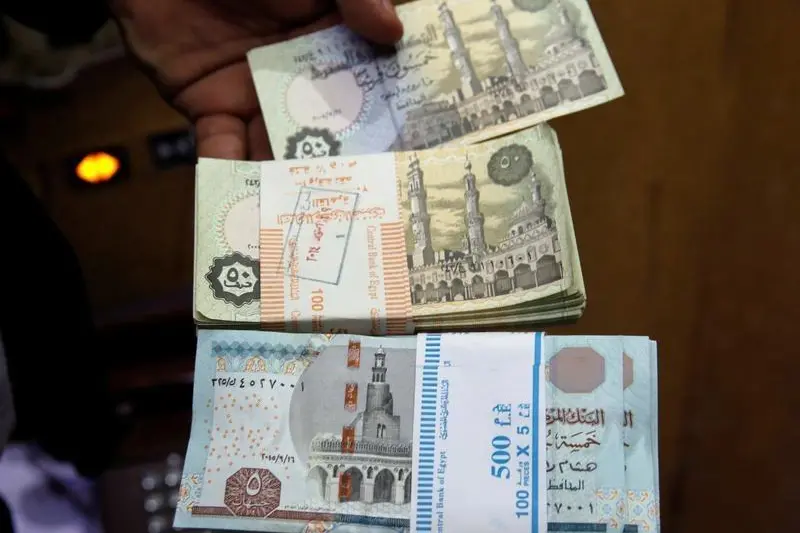PHOTO
CAIRO- Egypt is on track to reduce its total debt to a lower-than-expected 83% of GDP by the end of the fiscal year in June, helped by a widening of its primary budget surplus in the last half of 2019, Finance Minister Mohamed Maait said on Monday.
The primary budget surplus widened to 0.5% of GDP, or 30 billion Egyptian pounds ($1.91 billion), in the final six months of 2019 from 0.4% a year earlier, Maait told a news conference.
Egypt has said it aims to reduce its primary deficit to 2% of GDP for the whole of the 2019/20 fiscal year.
The overall budget deficit, which includes interest payments, rose to 3.8% of GDP in the last six months of 2019 from 3.6% a year earlier, partly due to an early interest payment on debt that matures in April and a 33 billion pound payment to top up the state pension fund, he said.
"We aim to reduce the debt to 83% by the end of the fiscal year, compared to the 89% we had (earlier) projected," Maait said.
The improvement in the primary surplus was helped by reductions in fuel subsidies, long a heavy burden on the budget, which were implemented as part of a three-year IMF programme that ended in November.
The oil ministry sent a net 3 billion pounds to the finance ministry in the July-Sept quarter, the first time in years it has provided a surplus, Maait said.
Oil ministry payments are expected to increase over the next five months, Deputy Finance Minister Ahmed Kouchouk said. The oil ministry expects fuel subsidy spending will fall to 30 billion pounds in 2019/20 compared to the original 52 billion pounds forecast in the budget, he added.
GDP is expected to grow by 5.8%-5.9% in the 2019/20 fiscal year, up from a previously projected 5.6%, Maait said. ($1 = 15.7300 Egyptian pounds)
(Reporting by Ahmed Ismail, writing by Amina Ismail and Patrick Werr; editing by Nick Macfie) ((amina.ismail@thomsonreuters.com; +20 2 2394 8114;))





















